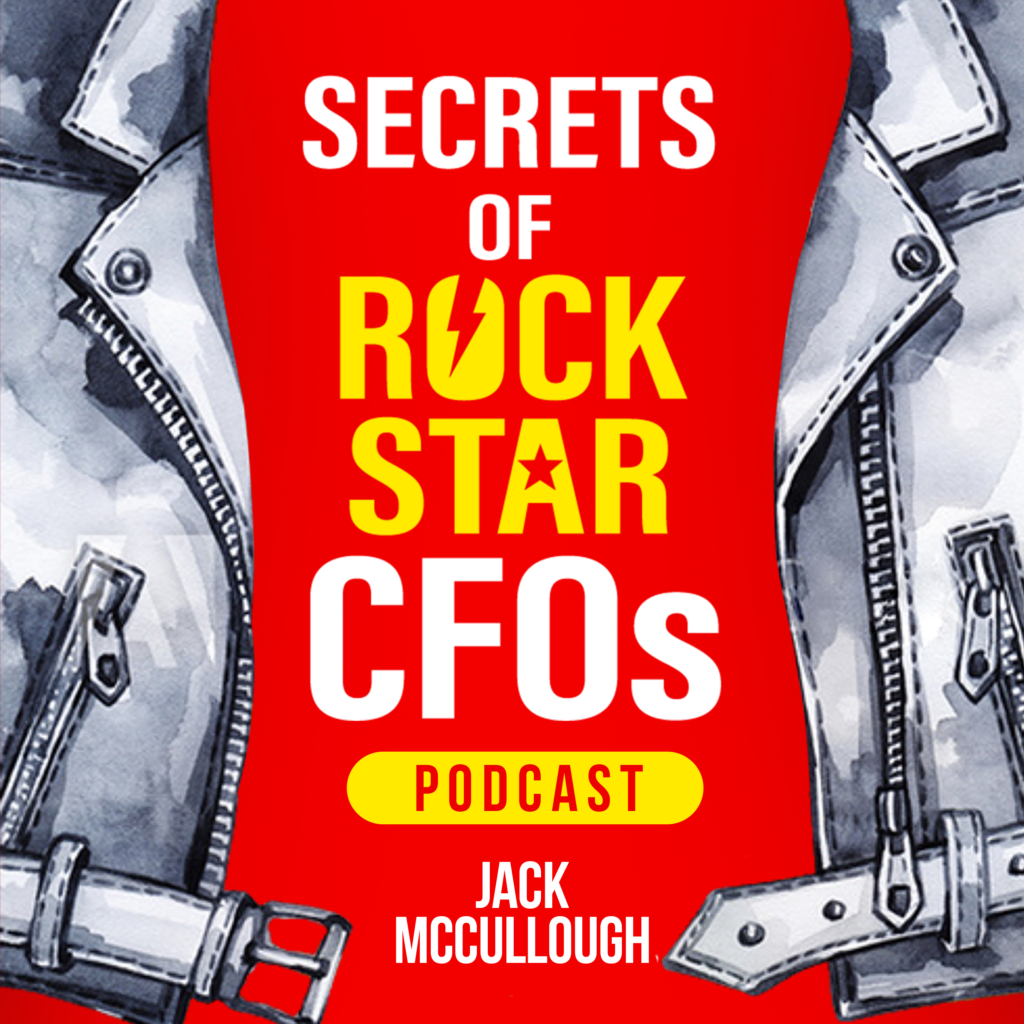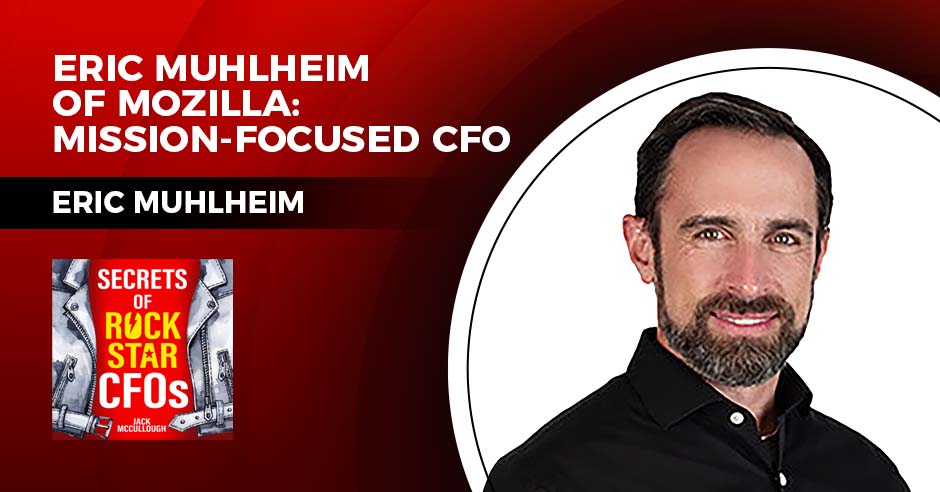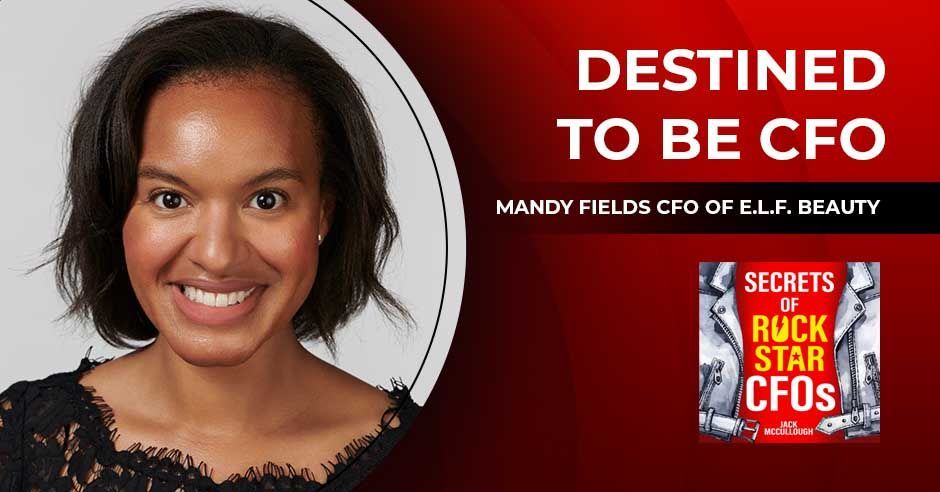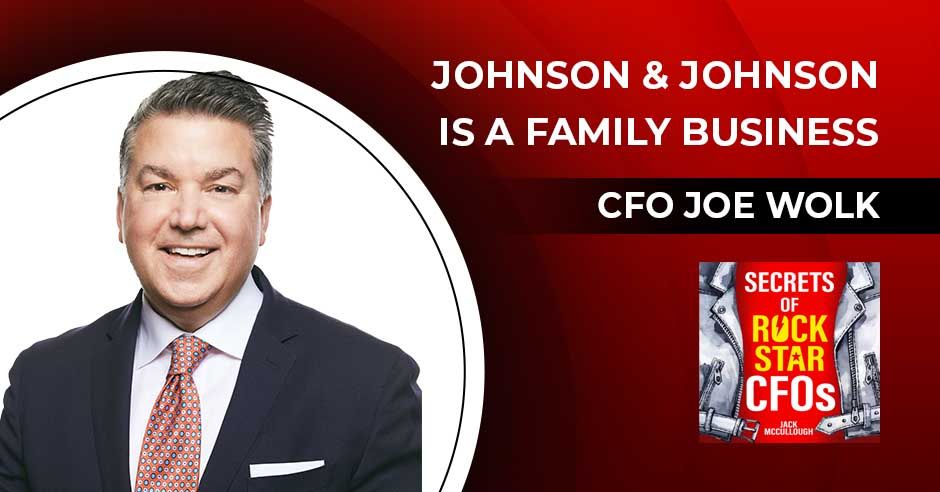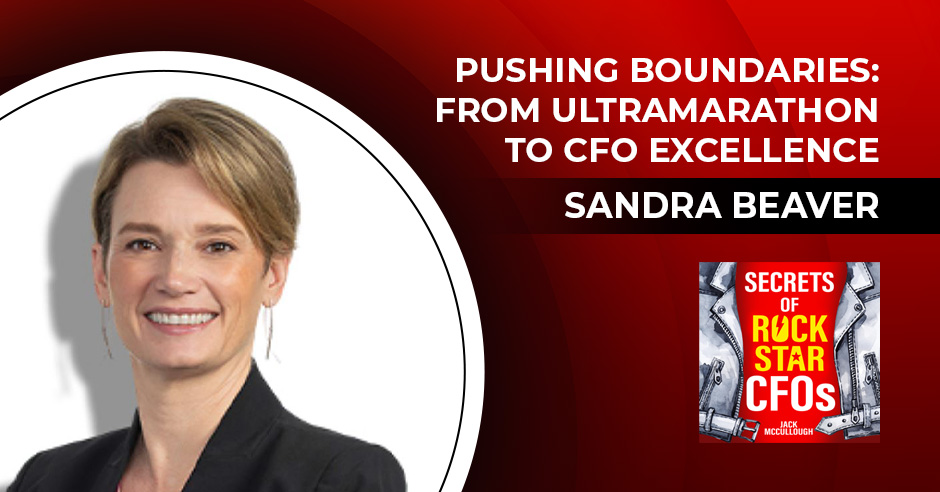Kelly MacDonald, CFO of Dynavax Technologies Corporation, discovered a passion for biotech at her first finance job out of college, witnessing an audit client get FDA approval for their drug. Moving on to a technical accountant role in pharmaceuticals, she leveraged her curiosity to learn as much about the sector as possible and ingrain herself in corporate strategy. So in 2021, with the U.S. deep in the throes of the pandemic, she saw an opportunity to make a positive impact—moving cross-country to take on the CFO role at Dynavax, a biopharmaceutical company that develops and commercializes innovative vaccines.
MacDonald joined our Jack McCullough to discuss her journey into a turbulent field during unprecedented times, the importance of treating the finance sector as a strategic asset, and how she is approaching her rookie season as CFO.
Listen by clicking below. The Q&A, lightly edited and trimmed for clarity, follows.
—
Listen to the podcast here
We have a great guest. We’re going to get right into it. Kelly MacDonald is the CFO of Dynavax. Kelly, welcome to the Secrets of Rockstar CFOs.
Jack, thanks so much for having me. First-time caller, long-time listener.
I love that expression. I have to admit, until you and I met relatively recently, I wasn’t previously familiar with your company. Maybe you could share the 10,000-foot overview on Dynavax.
First of all, as you mentioned, I’m Kelly MacDonald. I’m the CFO of Dynavax. Dynavax is a biopharmaceutical company based in the Bay Area here in California. We develop and commercialize innovative vaccines to protect the world and public health against infectious diseases. Our novel technology is a vaccine adjuvant, which is a substance that enhances the body’s immune response when it’s combined with a protein-based antigen. That’s what we use to create our vaccines.
From a 10,000-foot level, we do have a whole commercial asset. It’s an adult Hepatitis B vaccine sold in the U.S., outside of the U.S., and Europe. It’s poised to be the leading product in its category. We’ve also commercialized our proprietary vaccine adjuvant through multiple COVID-19 vaccine collaborations around the world outside of the United States, which I’m sure we’ll get into in a bit here in the upcoming questions. We also have an exciting earlier-stage clinical pipeline of a couple of different vaccine candidates that we’re excited about.
It’s been extremely rewarding to play the role I’ve been able to play for the company for the last couple of years, not only to help improve public health overall, but I’m proud of our work to support vaccination and particularly during the global pandemic when there was no playbook. I appreciate the opportunity to be here, Jack.
Dynavax, is it public or private?
Dynavax is a publicly held company. It trades on the Nasdaq with all of our other biotech friends. It’s been a very volatile environment for the last couple of years.
It’s not for the faint of heart to invest in that sector these days. It’s the sector that people are always going to be gravitating towards. The Baby Boomers, almost all of us are retired. The sector generally has such a bright future. It’s a great sector to be part of. Before we get into Dynavax and your professional career, I’d like to know a little bit about your background before you were an accountant and financial person. Where did you grow up, Kelly?
I grew up in a small town in Northwest Connecticut called Burlington. At the time I grew up there, it was less than 6,000 people in the town. We had one-half of a stoplight. It was a light that mostly worked, but it worked as a blinking red at the top of a hill. I had strong influences from my close community there, very close with my family. Both of my parents worked full-time and my brother turned out to be an exceptional athlete. I found myself surrounded by incredible people who are some of the most hardworking people I’ve been able to meet in my whole life. It made me motivated to want to always be the hardest working person in the room, which has served, at least at the beginning of my career. I’ve had to evolve that over time, but I’m grateful for the foundational years.
It is interesting. I didn’t know this about you until right now and I bet you didn’t know about me either, but I grew up in a town called Burlington.
No kidding.
It was a little bigger than your Burlington. I grew up in Burlington, Massachusetts. In my childhood, it was very much a small and farming type of community. We might have been 10 years ahead of the curve on you. Right now, if you don’t know, Burlington is a crazy town. When me and my high school classmates talk about the town that we grew up in, it’s almost unrecognizable to us. You mentioned that your brother was an exceptional athlete and I believe you were a very accomplished athlete on your own. You played at UMass.
I played at Fairfield University where I went to undergrad. I got my MBA at UMass. My brother is a far more accomplished athlete than I am. He’s a sub-2-hour 20-minute marathoner to this day, which is unbelievably impressive. I’ll take every opportunity I can to tell his accomplishments. He serves to be such an incredible inspiration for me.
As I said, both of my parents were working. Growing up in a small area, all of our friends, including my brother, in this case, worked at the local McDonald’s, which was two towns away. That was the nearest place that we all were able to work. We had a great time there and we made a lot of great memories. Being the first job after getting our driver’s licenses, it was a unique way to not only understand how teams work, how to solve problems through different dynamic and fast-moving challenges, and how to work with different people.
That was important from a foundational work perspective. You mentioned sports and the role that sports played in my life. I’m similarly pulling on that thread of collaboration, teamwork, and problem-solving. For me, growing up playing softball, getting the opportunity to travel all around the country during high school, and then ultimately playing one year of division-one softball at college, I was able to rely on those same themes and realize that personally, that’s what motivates me. It’s to work with other people, to solve problems with other people, and to have fun while I do it.
It’s funny you’ve worked in a McDonald’s in Burlington. I worked at a Burger King in Burlington. I have to ask because I have a theory on this. Your brother who’s more athletically accomplished than you, is he older or younger than you?
He’s two years younger than me.
That’s my theory because my younger sister is a much better athlete than me. I don’t want to diminish her confidence because she was a very good athlete naturally and she worked hard to become a good athlete. I think having me as an older brother, I’m four years older than her, I played basketball against her. I wouldn’t let her win. By the time she hit 17, she didn’t need me. It didn’t matter if I would let her win. That was around the point. She would let me win once in a while maybe. I think having an older sibling who competes against you probably does make you a better athlete. That’s a working theory I have.
I love that theory. I’m going to bring it back to him and try that one on for size. I am as competitive as a person can possibly be, so there was never a single moment where I let him win anything. For quite some time, I was physically larger both width and height, so I had a physical advantage. I think there might be something to that, Jack.
People thought I was a complete jerk. My sister and I are playing basketball. I’m 12 and she’s 7. I’m swatting her shots away and stuff. It was probably the reason she was a four-year starter by the time she got to high school. You graduated and finished your education. Did you get an MBA along the way or did you get it right after undergrad?
No, I went to work at PwC. That’s where I cut my teeth and learned a heck of a lot about not only the biotech industry but also the tech industry. I had some other opportunities to get some great transaction experience as I started my career at PricewaterhouseCoopers out of the Stamford office, but the Stamford office is part of the New York Metro group. We served clients throughout the whole New York metro area, which was a great opportunity for me to learn a lot across a number of sectors.
I started my career during the financial crisis. I was acutely aware of the fact that I needed to have a stable job. It was part and parcel, one of the reasons why I didn’t stay another year in college to get my MBA. I made a decision to get some career experience and some work experience and then pursue both my CPA and MBA after a few years of real-life professional experience.
That makes a lot of sense. When you worked there, was it PricewaterhouseCoopers or was it PwC?
It was synonymous at the time, and then I think now it’s PwC with the rebranding.
When I started my career, the firm that is now known as KPMG, at the time it was Pete Marwick and Mitchell. Sometimes I still refer to that experience as I worked at Pete Marwick. Young people are like, “What’s that?” It’s interesting. You have a CPA and an MBA. If you were to advise a young person in a hypothetical world, they could only pick one, would you recommend a CPA for a CFO job or an MBA for a CFO-type job?
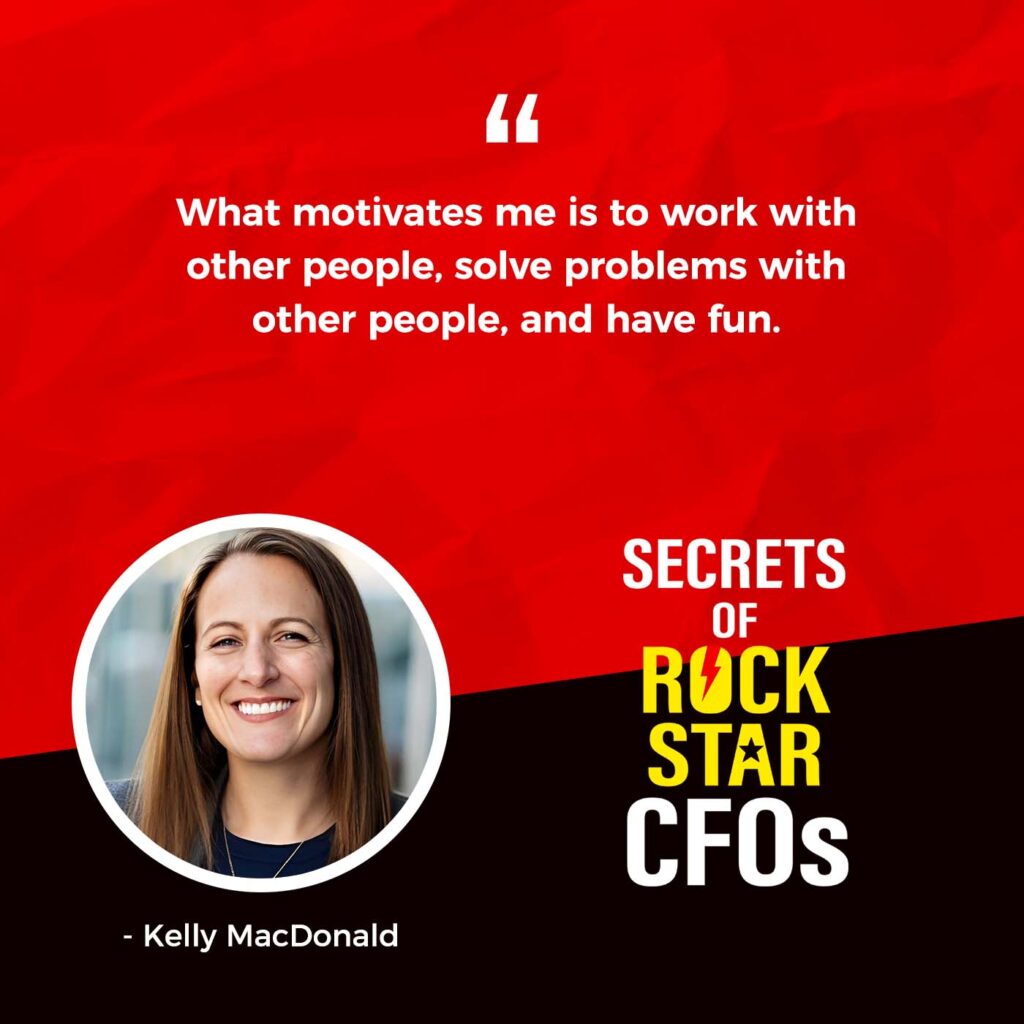
Both have been extremely valuable and not as much the letters as the experience. Certainly, in my MBA, at least in my particular experience because I had a few years of professional expertise under my belt already, I was able to learn a lot about problem-solving and different ways to think from non-finance folks and folks outside of the industry. That was valuable for me during that experience. Differently, for the CPA, it’s all the technical skills that are needed to understand what drives the financial statements, where judgments are appropriate, and how to think about the corporate finance concepts, which is extremely valuable as well.
I think the combination of CPA and MBA is a great one for CFOs, especially current CFOs who are certainly expected to be very professionally competent and subject matter experts. Not only in accounting but also across all corporate finance concepts, as well as operations, as well as the way the CFO seat has evolved. Now, more corporate strategy and real strategic thinkers. The CFO is expected to cover a lot of ground and be able to think not only technically from a very competent perspective, but also strategically. To me, I can’t pick one. I think it’s both. That would be my guidance and that is the guidance that I share with folks on my team.
We’ll talk about it later, but I know you love the mentoring aspect of your job as well. You left PwC, and then you went to Ironwood Pharmaceuticals. Tell us a little about that and as importantly, how that prepared you to become a CFO at Dynavax.
PwC was such a foundational and critical stepping stone to my career. I started with assurance. As I mentioned, my first few weeks were during the financial crisis, so the company was going through layoffs. Not having all that context coming in as a 22-and-a-half-year-old, seeing that straight away reminded me to go back to basics, put my head down, and work as hard as I possibly could. I always have enjoyed that and that has always been the role modeling that my family has given to me. It’s quite a gift as it turns out in hindsight. I leaned into that and took on as many opportunities as I could.
As folks left in any organization, when it’s going through a period of dynamic change, there are opportunities because the ground is moving from underneath. I said yes to every single opportunity. One of the opportunities that was outside of the scope of the industry I was working in at the time was a startup pharma client or a biotech client. That client, over the course of a couple of years of me serving at audit perspective, ended up getting FDA approval for their first drug. I was in the audit room and that was a pivotal moment for me when I realized, “This is neat.”
I was able to see this drug through development, meet with scientists, and sit with these biologists, chief scientific officers, and chief executive officers. I was in the room with some of these folks as they made some of these decisions. I felt like that was a unique opportunity to be part of that story, even though I was very far removed as the auditor outside looking in and corroborating their financial statements. That’s what spurred my love for biotech and my passion for the industry. Eventually, once I put my years in at PwC, learned as much as I could, and built my network at PwC, I knew I wanted to go into the sector.
With Ironwood, I saw a unique opportunity in a growing company that had launched what’s now a billion-dollar product, a very successful product. I saw a team with a dynamic set of leaders and a tremendous amount of growth opportunities. I joined as a technical accountant and somewhat of a bean counter building the SEC filings and used that as a platform to ask tons of questions and learn everything I could about the company, the biology, and the corporate strategy. I was able to leverage that background and my accounting background as a baseline to continue to grow, develop, and take on a variety of roles.
Ultimately at Ironwood, I was part of some of the most critical strategic decisions at that organization. Multiple commercial launches, including a couple of failed commercial launches, which was disappointing at the time. Though it served as a tremendous growth opportunity for all of us who were part of it to know that sometimes what not to do is as important as what to do. I saw a lot of business development and also with that some important lessons there. Integration sometimes is as important, if not more important, than the actual math behind the deal itself and the strategic logic of the deal itself. Maybe most importantly, in my time at Ironwood, I was surrounded by incredible mentors who helped me grow and develop. It is such an important pivotal part of my career.
Kelly, you’re stealing all of the questions that I had for you and I do plan on asking you about your mentorship. First of all, I love the fact that you referred to yourself as 22-and-a-half-years old.
That’s how I felt at the time.
I don’t think I’ve called myself by the half-year since I was about seven or eight. That’s great that you held onto that. You mentioned that you started as a bean counter and yet you had the intellectual curiosity that you started to think beyond that. This is still relatively early in your career, so you recognize that finance accounting is great, but to be a value add you have to understand the entire business.
We do. Nowadays, one of the key things that we focus on in our finance and accounting organization at Dynavax is making sure that everybody sees the finance org and what we do in finance as a strategic asset to the company. It ends up being so much more than just reporting on historical performance, as well as projecting future performance. It’s also identifying the gaps, identifying growth opportunities, and laying out different alternative paths that the company can take and consider.
Also, what’s the risk profile, particularly in biotech, of the different ways we can deploy capital to drive long-term value? There are so many elements that are unique to this industry and the biotech sector that I find a lot of passion in. Being in the CFO seat and finance in general and any organization in the sector, you get such a tremendous opportunity to create value and to learn so much about the company.
It’s a remarkable job. It wasn’t necessarily 30 years ago. It was a back office, after-the-fact type of job. Earlier, you mentioned the importance of mentors to your career. Are there any mentors along the way whom you’ve met that you think of and say, “He or she had a tremendous impact on even what I’m doing now years later?”
Many mentors. I feel so fortunate that I find myself reflecting, in preparation for an event like this show, who have been the most influential people in my career. I’ve been so fortunate to have senior leaders in finance, as well as outside of finance, in commercial and executive office leaders that CEOs throughout my career who have been so inspirational and influential and all in their own very unique ways.
To me, the thing that a good leader does is inspire confidence and give you the courage to take risks. As I reflect on my personal career journey, I’ve taken a lot of risks. Some of them have paid off in more accelerated fashions than others. Some of them took a little bit of a step back to learn something new. Maybe I would’ve ended up failing at that thing, but that was a decision that at the time I knew and was okay with because I know every risk you take, you’re going to learn one way or another, even if it doesn’t necessarily positively contribute to the ultimate trajectory of your career.
I’ve had friends who work at Google, the most innovative company in the world. They’ve shared with me that the failure rate within Google is surprisingly high. In an innovative and successful culture it’s only a failure if you don’t learn from it. It’s like, “What did you learn? Let’s go and try the next one.” It sounds like without thinking of it in such terms, you have a bit of a similar philosophy.
It’s unique to this sector itself. It’s a constant reminder that everything we do and every dollar we spend have a 1 in 10 or 1 in 100 success rate at any given stage of scientific discovery. You can’t stop doing the hard work and you can’t stop exploring and innovating because that’s when companies fail and that’s when you stop growing. I think what applies to the big picture corporate philosophy also can apply to the individual as well.
I think is maybe the biggest killer of companies. No one can catch us, no one can come up with better products, and then you’ve got three people living in their parent’s garage who’s going to come up with a better product pretty soon. You’ve had these great experiences, worked for two companies, and taken a lot from each. Tell us about Dynavax. How did that opportunity become available and what about it that attracted you to the role?
It’s my first time CFO seat at Dynavax. Although I had a rookie year in 2021, this is technically my rookie season as a CFO. I feel like we’ve been through a tremendous amount of growth as a company and proud of the transformation that the company has made since I joined in 2021. What brought me to the role was the opportunity to make a meaningful impact during the pandemic. Going to work for a vaccine company during the middle of a global pandemic was not for the faint of heart necessarily.
I suppose not.
It was a big decision. For me and my family, it was also a cross-country move. I was born and raised in New England, and then I spent the majority of my adult life in Boston. Moving to the Bay Area was exciting and very nerve-wracking, but ultimately the chance to work with this group of people and this company that had a mission that I aligned with and believed in. I’ve listened to other folks on the show iterate this as well. It’s all about the team that you’re working with and being passionate about the work that you’re doing. That’s where I find the most value and that’s where I find the most motivation. Dynavax hit every single one of those notes for me.
That makes a lot of sense. You used the phrase, I may get it wrong, but repositioning the definition of the CFO. Tell us about that. How do you want people to think of CFOs going forward?
It’s one of the things that I’ve been working on since joining Dynavax. It’s around helping people see and helping not only the company but the whole executive team, as well as the board, understand that the finance organization is truly a strategic asset to the company when built properly and when leveraged strategically. For Dynavax, it’s interesting. We talked a little bit about personally what brought me to the company and all the feel-good factors there, and think about who you want to be surrounded with in a room as you punch through walls and get through tough challenges together.
As much of that is the technical competencies that are required. Make sure that you have a view on capital allocation that matches up with the company’s strategic initiatives, priorities, and long-term growth. Having those things go hand in hand is critical to be successful at driving value. You can’t deploy capital to generate value if that’s not aligned with your strategic mission and vision. You have to have the CEO, CFO and the board in a very strong partnership and alignment. Uniquely, that was something that I was looking for in my first-time CFO seat. It is that I could be aligned closely with the board’s vision and the CEO’s vision. I think all these themes come together.
I’d like to talk about your relationship with the CEO of the company. He had about a 10-year head start with you on the company, maybe even a little bit longer than that. Is the CEO the founder of the company?
He is not the founder. I believe he came on as a consultant, as an assistant controller, and worked his way through the organization. He was curious, very intellectually capable, and moved his way from accounting to finance to commercial finance. Ultimately, it was a brand lead for what’s now our lead commercial asset. He led the restructuring of the company back in 2018 and into 2019. The company has been through a number of different eras and that’s how I think about organizational growth.
What we’re in right now, we just wrapped up the most recent era and are starting on the next one. Brian has been a tremendous thought partner and a tremendous leader. He’s somebody that I certainly respect and see eye to eye with in terms of how to drive value. It also does help that he has that finance background. Not every CEO does.
That’s an interesting thing because about 1 in 100 companies have a CEO who used to be A CFO. At this point, presumably, you’re a very superior CFO to him. Does he still forget that he’s not the finance person a little bit? Does that ever come into play that he thinks he knows the CFO job well still? He probably still does, right?
He was never the CFO. He was deep in commercial strategy before becoming a CEO, but he certainly has a very strong financial acumen and financial background. Does he think he’s the CFO sometimes? I don’t think so. I think he respects my corporate finance abilities. I think he learns a lot from me too, which is great. We have a nice partnership. At the same time, it is nice to have somebody who can articulate some of the more complex strategic finance ideas. We explore a lot of unique financing opportunities and convertible debt. Some of this stuff can get very technically complex and is unique to where our company is in our stage of growth and where we are in our lifecycle. Having a CEO who understands some of the vocabulary is helpful.
That’s great. It has to be a tremendous thing from the investor standpoint that you have two financial gurus. Different skillsets, yet a lot of financial expertise at the top of the company has to be invaluable. I’d like to learn a little bit more about the team that you inherited and that you’re building and continuing to nurture over Dynavax. I know that building and leading teams is one of your professional passions.
I was very fortunate to inherit an extremely strong team at Dynavax. I was reflecting on our eras in the prior question of where the companies come from. When I joined the company, they had completed a larger restructuring. The team was working off of what I would consider a very streamlined and even skeletal-type organizational structure. The company had been through a lot of change and it was a very dynamic time.
With that background in mind, the team was probably a little uncertain about what to make of a new CFO or a new leader, somebody from Boston. Not only am I transplant with a funny accent sometimes, but I think you’re always uncertain when you get a new leader exactly what they’re going to try to solve for in the next 90 days, one year, two years, or whatever their vision is. I feel like it was a blessing to be able to have the opportunity and to have a group of people who were open to my leadership style. They’ve all grown tremendously as we’ve grown as a team. They’ve all grown and developed in an impressive way.
Our team now, I think one of our strengths is we have this secret sauce. I always remind the team that, “You guys have this secret sauce thing. It has nothing to do with me.” This is a group of people who empower each other and want each other to do well all the time in their personal lives and professional lives. It’s such an incredible group that solves problems and solves problems outside of finance because we are a strategic asset to the company and we’re very embedded in the organization. It has taken a few years to build those processes, but I think at this point everybody is proud of the work that we’ve been able to do collectively.
To be part of that and to reflect on the team’s progress over the last three years as the leader of that team, I couldn’t be more proud of that group. For me, it’s making sure that they are clear on what the vision is for what we’re trying to solve. Leveraging the right technologies. I think it can always be difficult to focus on the long term when we’re so entrenched in the day-to-day.
One of the areas that I can bring a lot of value to our teammates is helping them see that vision, focusing on those critical items, and reminding everybody, “Remember two years ago, we used to close the books in 10 days, we now do it in five. By the way, we’ve been able to automate over 10 percent to 15 percent of our previously manual controls.” Reflecting on these things that day-to-day feels like such a grind, and then you reflect back two years ago and take credit for it goes a long way. Where I sit now, it’s been about under three years of working together and coming up with a great reflection point with a lot of wins beyond our sales.
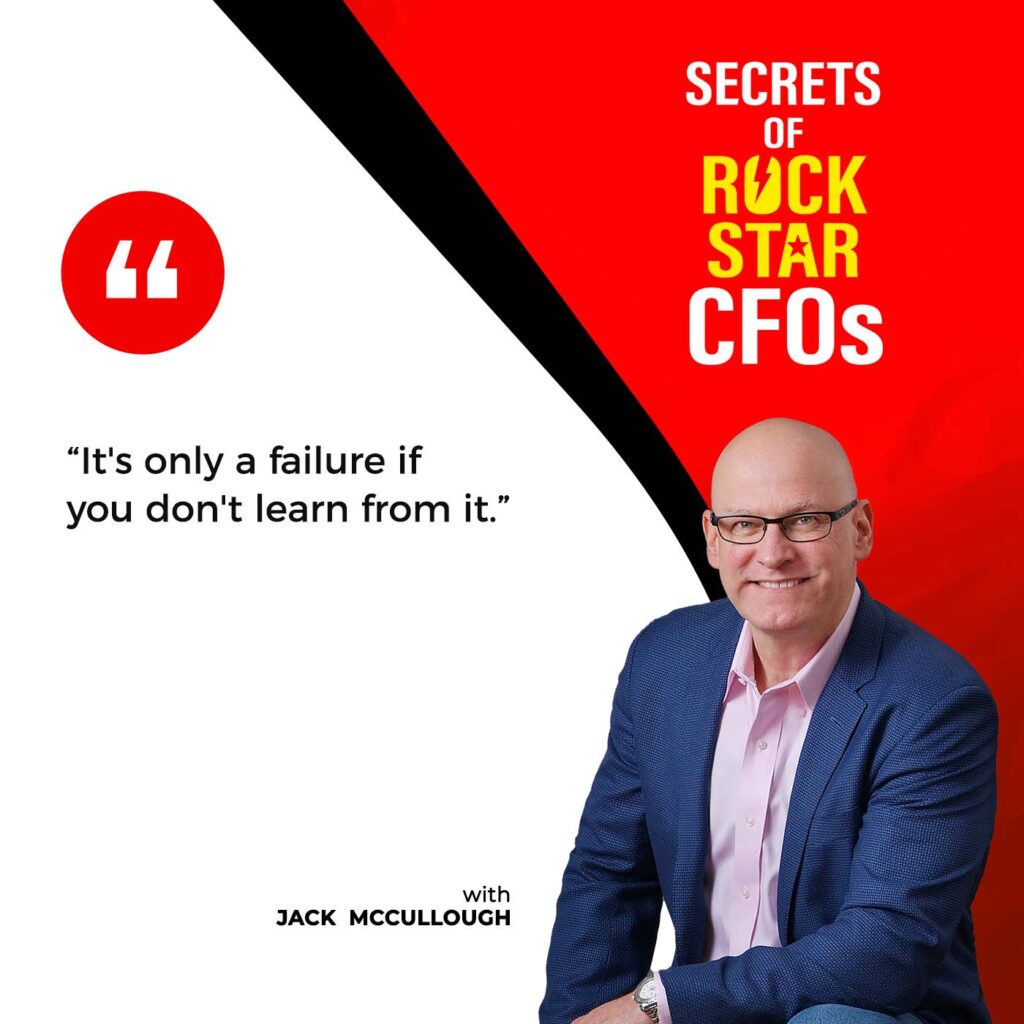
It sounds like you’ve had an impressive record of employee retention in the last few years. Do you have a lot of the same people who were there when you joined?
Just about everybody. We’ve added some critical capabilities. As the company has grown, we’ve had to add some technical expertise in corporate strategic finance to support our corporate development initiatives. We’ve also built out a little bit more strength in our investor relations capability and our internal communications capability. Particularly because we have fully linked into being a remote organization which has certainly had its benefits and challenges and we’re still learning every day along the way. We’ve supplemented the team and brought on some incredible talent and folks continue to learn from each other and grow together.
We make a career now as some kind of coach to CFOs because I hear over and over again the biggest challenges they face. It’s all about employee retention. Even companies that aren’t actively recruiting, a lot of them tell me they want to keep the talent that they have that they’ve developed over the last few years. It sounds like you’ve done a great job of doing that. Congratulations.
Thanks. A large part of it is due to the success of the organization as well. I think people want to work for organizations that are not only doing good work but with purpose and reasons they can be proud of.
I want to get back to mentoring because you spoke earlier about the mentors that are important to you. A lot of people have told me that I was one of the most important mentors they’ve ever had. I never even thought of myself in that role. I guess it was because I’m a big mouth and I’m always voicing my opinion on stuff as some kind of strange form of mentorship. Are you mentoring people at this point in your career, either formally or in a more casual way?
Both. It is a funny thing because I don’t see myself as that either. It’s funny you squared it up that way. I do look and think about all of the incredible mentors that I’ve had in my career. At the time, they weren’t set forth to be my formal mentor. They were just people who I trusted and could get real advice from even when I didn’t even know I was seeking it. It’s like, “What do you think about this opportunity to take on this project? What’s a great way I can ask to be in this room for this discussion so I can listen?” It is stuff like that where you get exposure and grow and get that perspective over time.
Because of the informal nature of my experience, I look for opportunities to make sure that I’m available for our employees at Dynavax. Even folks that I’ve worked with at Ironwood, at PwC, and have met along the way at conferences and all those other fun things that we have the opportunity to do as finance experts. On the formal side, I’ll raise my hand every time when there’s a mentoring opportunity that’s a little bit more formal or structured.
I want to get back to something you mentioned a couple of times that finance is now viewed as a strategic asset for the company as opposed to maybe a cost center or overhead. How do you do that with scientists, for example, who are brilliant in the life bite of the company? How do you bring value to them and establish credibility for yourself and the finance organization, to crowds like that, and sales and marketing and development?
It’s certainly one of the biggest challenges. As challenging as it is to sit with that constituency and learn about the biological, clinical, regulatory, and technical risks with any given clinical or preclinical program. It’s equally challenging to share different corporate finance concepts and different corporate finance perspectives. One of the things that we’ve been able to do well and that I’ve seen done well at other organizations and that we do well at Dynavax is create touch points. There is mutual trust and education flow or information flow throughout the organization. You can have a dialogue around different alternative paths for the different pipeline assets and ways of thinking about commercializing a potential clinical candidate.
Opening up that information flow over time builds trust. We will provide the finance team with the right information so that we can do scenario planning and importantly make sure that everybody in the organization who’s impacted by this scenario planning understands, “This is our portfolio review process. Here are a whole bunch of scenarios. Here’s what the financial profile looks like.” Also, taking the time to invest in making sure that the organization understands that.
I spend a lot of time at the senior leadership team level walking through our long-range plan, our views on corporate valuation, and our views even from an outside perspective. What are investors saying? Who are we targeting from an investor perspective? What do they think? What do we think? Where are their gaps? Where do we need to communicate better?
I think providing that education goes a two-way street. As much as some of the more technical and scientific folks might not appreciate or fully understand the complexity of corporate finance and corporate strategy, certainly, there’s so much fun for me to learn a lot more about the ways that we’re trying to help the scientific community and explore different innovations and breakthrough vaccines in our case, but medicines and therapies throughout the industry at large. It comes down to trust.
It’s interesting because when I was a CFO, I was more traditional tech. I did an internship at Biogen for just a few weeks, so it was one summer. One thing I’ve learned is that scientific people all think that they could do a CFO’s job. In two weeks, they could master the job. I never had any illusions that I could run an engineering department. Most of them think it’s easy. You have to prove to them, “This is the value that I can bring. I’m not a glorified accountant. I bring some strategic and financial value to the company.” It sounds like you’ve figured that out, but you’ve mentioned you’re a pretty intense person and very competitive, but there is a life outside of work. I’m wondering what you do to achieve that elusive work-life balance.
Very elusive. I wish I had all the tips and tricks. It’s something that I continue to practice every day and seek as much advice as I try to give it. To me, it’s very individual and it ebbs and flows on where I am personally in my life. There are chapters of my life where I’m very career-focused and oriented. There are chapters where I have to take a step back a bit and focus more on my personal aspirations. Not to say I’m taking my eye off the ball at work, it’s just sometimes you can put in those 80-hour work weeks that all of our finance and accounting colleagues love to brag about as we have the scars to show it. That’s not sustainable throughout my entire career and I think we all know it.
Being forthright about where you are and being intentional, like you have a lot of energy to put into this chapter and there’s a real reason to drive forward. Deploy that effort there and know what your priorities are and do it on purpose. Likewise, I have an exciting chapter coming up. My wife and I are expecting.
Congratulations.
Thank you. We’ll have a new addition to the family and I’m sure I’ll have to figure out all kinds of new ways to balance work in life. Believe me, I’ll be asking for all the advice from all the folks who have had to chart this course in in the past.
Your first?
Yeah, it’ll be our first.
You’re in for the time of your life. That’s good. Some people are driven. Long ago, I did realize that bragging about an 80-hour week is insane. It’s not a badge of honor to work an 80-hour work week. We do it all the time. You do it when you need to, but not as a lifestyle. I sold the CFO Leadership Council a couple of years ago and my wife thought that maybe I would be working a little bit less because I’d built up the company, achieved some success, and then sold it off.
It hasn’t been that way at all because I’m driven, even though I no longer own the company, I’m trying to build the best company and the best experience for my members and my sponsors that I’m capable of doing. I can’t imagine I’m ever not going to be like that as long as I’m in the workforce. You’re probably driven in very similar ways, but I do know you’re an outdoorsy person. Do you go camping and hiking?
I am, yes. We have two dogs. We love to camp and hike. Hiking more than camping these days. We love to ski. The minute I retire, I would love to be a ski bum, a lift operator, a ski tour guide, or something like that. I don’t know what the best job for me would be, but it would certainly be in the mountains.
Like you, Kelly, one of the things I would like to do is to change their perception of CFOs as boring and dry accountants. To that end, I like to end this show whenever possible, either by having my guests share a surprising fact about them. Let us know what their walkup music is when they speak at conferences or maybe if they have a go-to joke. Do you have any of those that you’d like to share as we conclude?
I’m happy to share a go-to joke, although I’m also happy to keep the perception of the CFOs as boring accountants as a secret that only we know. It’s not true at all. It’s such a strategic position and one that’s so critical. My go-to joke right now is combining both the season as well as the relevant financial concepts. Where does the snowman keep its money?
I’m thinking of the North Pole. I have no idea. Where?
A snowbank. Now that I told you the joke, I’m fearing that I might have accidentally or inadvertently reinforced the perception we’re trying to debunk. There we are.
I find it very funny. It could be you and I are the only two who will find that remotely funny. That’s classic. If you think I’m not stealing that, you’ve completely misjudged my character. Since this show live forever, Kelly told that joke in early December. Beautiful. This has been fantastic, Kelly. I know you’re a public company CFO and you have a lot going on. I do want to wish you all the best with your new family. Mostly, thank you for being a guest on Secrets of Rockstar CFOs. I’ll give you the final word.
Jack, thanks so much for having me. Also, thank you so much for what you’ve done with the organization and even with this show to bring together the CFO community. It’s truly valuable and extremely important for us to stay connected and learn from each other. It’s been a privilege to be here with you. Also, it continues to be a privilege to be part of the Dynavax team and share the excitement for this next chapter of our story and my career journey. Thanks again.
Thanks to Payhawk for sponsoring the Secrets of Rockstar CFOs show.

